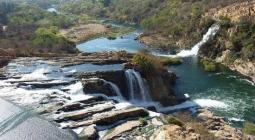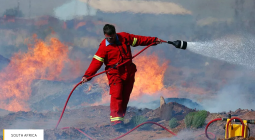Just re-elected, President Ramaphosa promulgates South Africa’s climate law

South Africa's first climate change law has just been signed into law by President Cyril Ramaphosa. It should set South Africans on the path to economic and environmental resilience.
Barely a month after his re-election, Cyril Ramaphosa signed into law South Africa’s first Climate Change Act. In other words, environmental issues are now at the heart of the second mandate of the man who was taken to court for “climate inaction” following the deadly floods (at least 443 deaths) in 2022. The new law “defines the national response to climate change, including mitigation and adaptation measures to contribute to global climate action. It aims to ensure that our transition to a resilient economy and society by 2050 is not hindered by political contradictions“, said Vincent Magwenya, spokesperson for the South African Presidency.
This text reflects South Africa’s desire to honour its many commitments to the international community in terms of ecological transition, especially as it is the 15th largest emitter of greenhouse gases (GHGs) in the world. These include its Nationally Determined Contribution (NDC) under the Paris Agreement, which it signed in 2015 at the 21st United Nations Conference of the Parties (COP21) on climate change. The creation of new jobs in the green economy and the acceleration of carbon neutrality in industry are among the directives of the new legislative framework.
The road to carbon neutrality
The energy sector is largely responsible for global warming in the rainbow nation. In fact, “more than 90% of the production of state-owned Eskom is provided by coal-fired power stations, making the country one of the biggest emitters on the planet. It accounts for 25% of GHG emissions in sub-Saharan Africa”, according to the French Development Agency (AFD).
According to the South African government, all territories, all sectors and all social classes are affected by the law, because the effects of climate change – floods and droughts – are felt at all levels, particularly on water resources (water stress), agriculture (reduced productivity) and ecosystems (loss of biodiversity). The Presidential Commission – envisaged since 2020 as part of the National Plan to Combat Climate Change – will therefore finally be created. It will have 24 members and a budget of 50 million South African rand, or over 3 million dollars.





